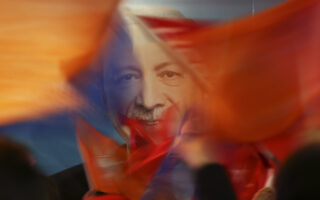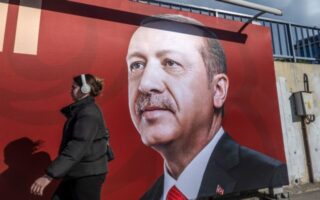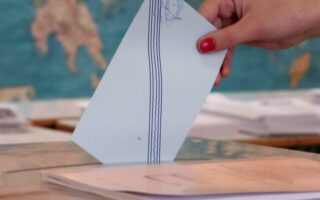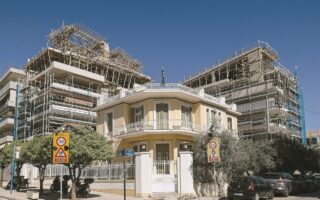What kind of Turkey will emerge from the ballot box?
Experts analyze the good and bad scenarios that could come out of the May 14 elections
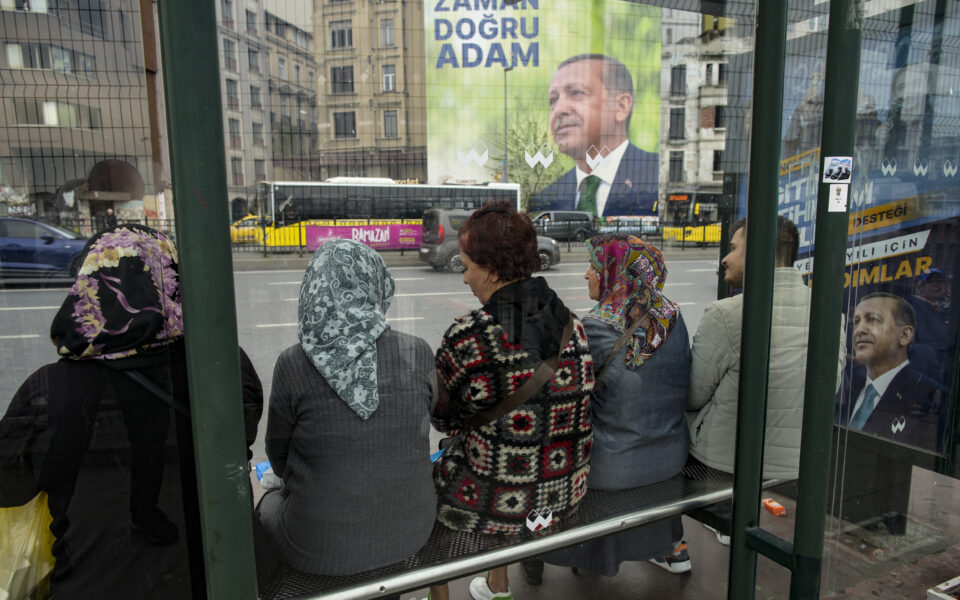
Will Kemal Kilicdaroglu become the first leader of the main opposition Republican People’s Party (CHP) to lead a government in Turkey after Bulent Ecevit? And, if that happens, how will Recep Tayyip Erdogan react? How will he manage an election loss, especially if it’s marginal? These questions are preoccupying those who are closely following the historical turning point that Turkey seems to be reaching, with the first round of voting next Sunday.
Predictions are even more uncertain about how the result of the ballot will affect Ankara’s foreign policy, especially toward Greece. Some believe that Kilicdaroglu has more reason to restore Turkey’s relations with the West and will be less provocative in his confrontations with Greece. By the same token, Erdogan is less predictable and more likely to view an unlikely electoral victory as a blank check.
Others recall that the narrative of the “occupied [eastern Aegean] islands” was invented by Kilicdaroglu’s party. They also suggest it is possible that, if the incumbent wins, he will focus, without the stress of re-election, on the management of domestic affairs, avoiding tensions in the Aegean, following the calm created by the recent earthquake diplomacy.
Erdogan’s main opponent in this election is the economic crisis and the burdens it has brought on the average Turkish citizen. Experienced analysts present the prospects opening up for Turkey, but also Greece, depending on the verdict of the ballot box.
Ryan Gingeras – Professor, Naval Postgraduate School in California
Economic recovery will be difficult
 It should be said, from the beginning, that many Turks possess little interest in the opinions of Western observers. What many in Europe or United States believe is “good” for Turkey is often met with suspicion or outright mistrust. Nevertheless, there is at least one belief that appears to unite a majority of Westerner observers with most Turkish voters: People throughout the country face dire economic straits. So far, both Erdogan and Kilicdaroglu have presented two differing interpretations of this crisis. Turkey’s current president promises to speedily rebuild areas affected by the February earthquakes. While he has recently declared that the country’s economy is “a model” for the world at large, his reported willingness to reappoint Mehmet Simsek, who was fired as minister of finance for his dissenting economic advice, appears to suggest that he’s less than confident in this claim. Kemal Kilicdaroglu, meanwhile, has made economic reform and recovery a centerpiece of his campaign. Backed by noted economists and technocrats, he likely will pursue a conventional set of solutions in dealing with inflation, cronyism and foreign investment. Erdogan may radically alter his economic policies following the election (which is possible but perhaps unlikely). It seems more probable that international investors will take heart in a Kilicdaroglu presidency and that more positive steps towards Turkey’s economic recovery would follow.
It should be said, from the beginning, that many Turks possess little interest in the opinions of Western observers. What many in Europe or United States believe is “good” for Turkey is often met with suspicion or outright mistrust. Nevertheless, there is at least one belief that appears to unite a majority of Westerner observers with most Turkish voters: People throughout the country face dire economic straits. So far, both Erdogan and Kilicdaroglu have presented two differing interpretations of this crisis. Turkey’s current president promises to speedily rebuild areas affected by the February earthquakes. While he has recently declared that the country’s economy is “a model” for the world at large, his reported willingness to reappoint Mehmet Simsek, who was fired as minister of finance for his dissenting economic advice, appears to suggest that he’s less than confident in this claim. Kemal Kilicdaroglu, meanwhile, has made economic reform and recovery a centerpiece of his campaign. Backed by noted economists and technocrats, he likely will pursue a conventional set of solutions in dealing with inflation, cronyism and foreign investment. Erdogan may radically alter his economic policies following the election (which is possible but perhaps unlikely). It seems more probable that international investors will take heart in a Kilicdaroglu presidency and that more positive steps towards Turkey’s economic recovery would follow.
Paradoxically, Kilicdaroglu’s victory may be tempered by ill will in the short term. Turkey’s road to economic recovery will be hard and perhaps arduous. As the head of a fragile coalition government, he may be beset by a variety of disagreements and crises, thus undermining his authority and capacity to govern. On this basis, Turkey could be thrust again into a state of serious political upheaval. An Erdogan victory, however, could be far worse. Whatever stability or predictability his renewed presidency may bring, it seems likely he will have other priorities in mind beyond the economy. Among them may be a continuation of his aggressive policies towards Greece (whether a Kilicdaroglu presidency would follow a similar approach towards Athens is less clear). If this is the case, the suffering many people in Turkey currently endure likely will continue and perhaps grow worse.
Alan Makovsky – Senior fellow for national security and international policy, Center for American Progress
Kilicdaroglu inexperienced but predictable
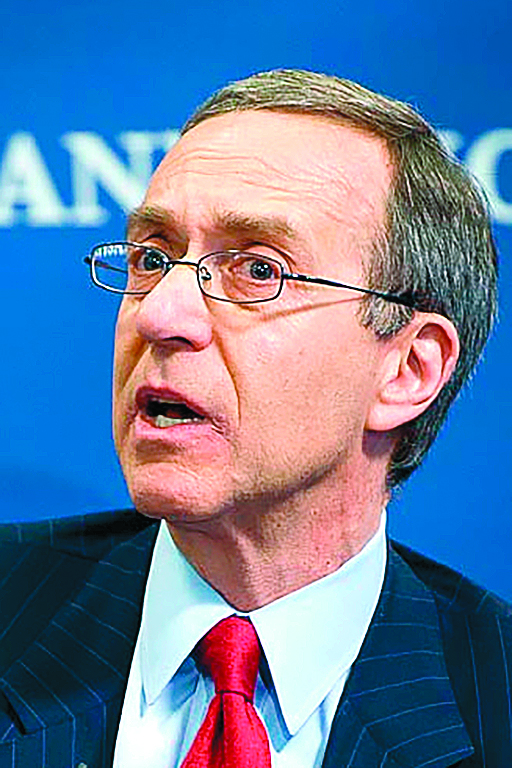 It’s a very hard election to call. It’s clearly very close, with a likelihood that the presidential election will go to a second round. The parliamentary election may well determine who wins the presidency, as Turks are not used to French-style cohabitation and may be inclined to favor the presidential candidate of the bloc that wins parliament (although an opposite reaction is also possible, particularly if voters react negatively to a parliament in which HDP holds the balance of power). There are many possibilities.
It’s a very hard election to call. It’s clearly very close, with a likelihood that the presidential election will go to a second round. The parliamentary election may well determine who wins the presidency, as Turks are not used to French-style cohabitation and may be inclined to favor the presidential candidate of the bloc that wins parliament (although an opposite reaction is also possible, particularly if voters react negatively to a parliament in which HDP holds the balance of power). There are many possibilities.
In general, the opposition is as nationalist on Aegean issues and Cyprus as is the Erdogan government, but it’s likely to be less provocative. If the opposition wins, it will need to focus on the economy, and, to that end (and for other reasons), it will require the goodwill of the West. Thus, it is likely to continue the policy of calm in the Aegean that has prevailed since the earthquakes, at least for the first several months and provided there is no unexpected incident. If Erdogan is re-elected, he, too, will have good reason to focus on the economy and to support calm in the Aegean, but he is far less predictable and feels far less beholden to the West than Kilicdaroglu likely would.
On Cyprus, the opposition is likely to be more open to renewing negotiations than is Erdogan – again, for the sake of relations with the West – but it is likely to be as tough as any previous Turkish “partner.” A re-elected Erdogan would likely adhere to his current no-talks, two-state policy.
A few points to keep in mind, should the opposition win:
CHP has not led a government since the days of Bulent Ecevit in the 1970s, and it hasn’t even been in government as a junior partner since the mid-1990s. There is very little governing experience in its ranks. There are likely to be some growing pains, particularly as it will be navigating its way in a presidential system that CHP opposed when it was voted in by referendum in 2017.
Moreover, my impression, based on meetings with Kilicdaroglu that I’ve attended, is that he is far more interested in and knowledgeable about domestic issues than he is foreign affairs. He will be bolstered by current and former diplomats, but it may take some time before he feels comfortable in foreign policy.
Erdogan as opposition leader (assuming he doesn’t retire) would probably restrict Kilicdaroglu’s policy flexibility by persistently challenging his nationalist pride.
Western allies will shed no tears if Erdogan loses, and they will want to be welcoming to the new government, particularly if it quickly meets its pledges to implement ECHR decisions (leading to the release of several political prisoners, including the two most famous, Demirtas and Kavala) and to ratify Sweden’s NATO membership in time for the Vilnius summit. This conceivably could produce pressure on the Greek and Cypriot governments to be more flexible than they would like on various Turkish-European issues.
Ahmet Insel – Turkish economist, editor, journalist and political scientist, professor at the University of Paris 1, author of ‘Erdogan’s New Turkey’
Changes more of style than of substance
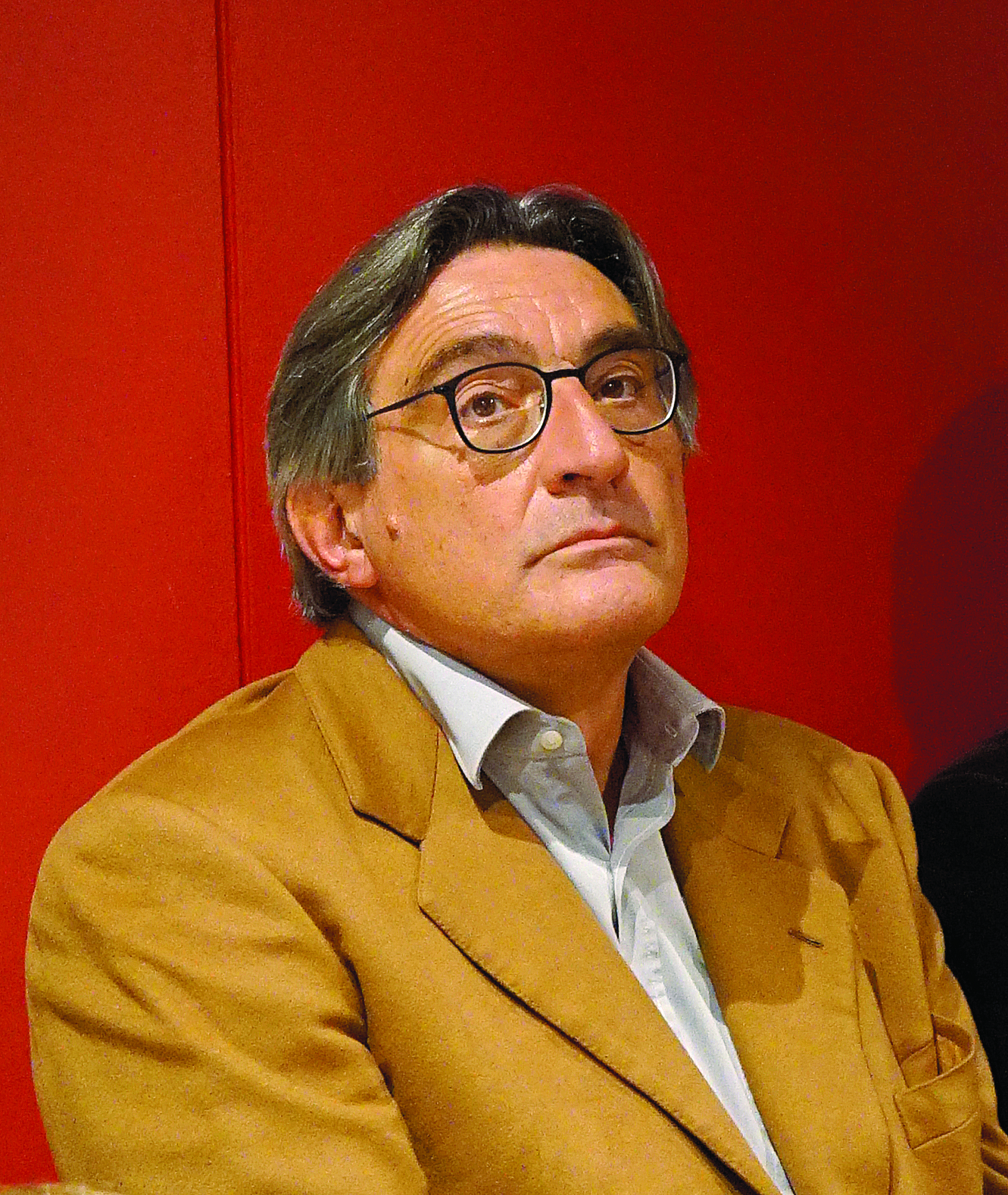 The victory of the opposition “will not completely overturn Turkey’s foreign policy,” according to Ahmet Insel, a Turkish journalist, academic and author of the book “Erdogan’s New Turkey.” Against Cyprus and Greece, in particular, according to Insel, who lives in Paris and teaches at Paris I (Sorbonne) university, the changes will be more of style than substance.
The victory of the opposition “will not completely overturn Turkey’s foreign policy,” according to Ahmet Insel, a Turkish journalist, academic and author of the book “Erdogan’s New Turkey.” Against Cyprus and Greece, in particular, according to Insel, who lives in Paris and teaches at Paris I (Sorbonne) university, the changes will be more of style than substance.
Regarding Cyprus, “the complete annexation of the north of the island will no longer be on the agenda, but the ‘frozen conflict’ will continue. The government could encourage the Turkish Cypriots to engage more in dialogue with the Greek-Cypriot side – if of course this is also the desire of the government in Nicosia. With Greece, the confrontation will continue, but there will not be this permanent tension, these threats that ‘we will suddenly come in the night’ that Erdogan has been issuing lately. But should the opposition win, the government will still be nationalist, no more and no less than previous ones – though perhaps more open to dialogue. Above all, foreign policy will not depend on a single man and his moods.”
“The problems of the region will not change after the elections,” continues the Turkish intellectual. “Probably there will be some normalization in relations with EU and NATO, there will be the green light for Sweden to join [NATO], the deactivation of the S-400 missiles, perhaps a return to the F-35 fighter jet program (if it is not too late) and the resumption of accession negotiations with the EU.” As for Russia, “there will probably be a little distancing, some mutual mistrust, but Turkey will probably continue its role as a mediator” between the two warring sides. “Already, under the threat of US sanctions, the Erdogan government suspended the transit of products destined for Russia from Turkey a month ago.” In Syria and Libya “the current policy is likely to continue. Turkey’s ambition to be a regional power will remain in place.”
Insel foresees more significant changes inside Turkey if Kemal Kilicdaroglu is elected. “The joint program of the National Alliance [the opposition coalition] foresees substantial reforms regarding the freedom of the press, the independence of the judiciary and the restoration of the rule of law. Especially since the Alliance will likely not have a majority in parliament, the parliamentary group of the coalition of the Left, which includes the pro-Kurdish HDP party, will be able to negotiate bolder reforms on these issues. A wind of freedom is sure to blow in the wake of the election if Erdogan loses. After all, Kilicdaroglu promised to immediately implement the decisions of the European Court of Human Rights.”
If, on the other hand, Erdogan is re-elected, “it will be difficult to change course,” according to Insel. “He formed a far-right alliance, with ultra-nationalist and extreme Islamist parties. Political rationality dictates that he change his foreign policy strategy to overcome the enormous economic difficulties he will face. Some commentators predicted the same after the 2018 elections, but Erdogan continued unabated on his authoritarian, Islamist course and further distanced himself from Western countries. To change course, he would have to be able to find new allies among the parties of the opposition. However, the hatred against Erdogan is strong and deeply rooted in that side of society.”
Domestically, Erdogan’s re-election will signal the “consolidation of an authoritarian political system in Turkey, the institutionalization of a quasi-dictatorial regime. Getting out of something like this will be much harder five years later – the hopes of it happening through an election will fade. Turkey’s future will be very chaotic. After the failure of the united opposition in Hungary, it will also be very bad news for the future of democracy internationally against the ethno-populists,” he concludes.
Murat Somer – Professor of political science and international relations, Koc University, Istanbul
Good scenario for Turkey is good for Greece
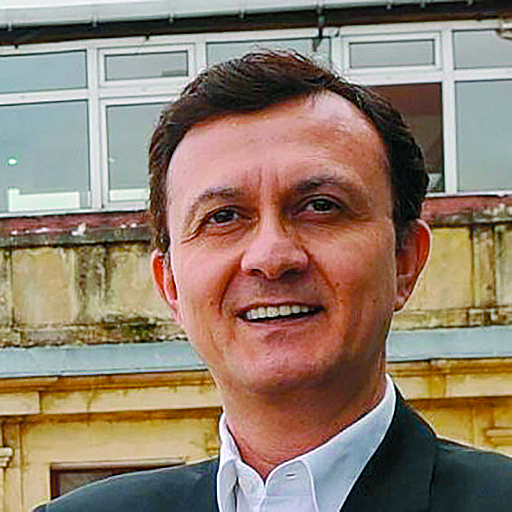 The good scenario is that the voters vote as a block for democracy. And the opposition wins both presidential and parliamentary elections by wide margins so that the government and the state institutions it has politicized cannot spin facts and deny the results even if they want to.
The good scenario is that the voters vote as a block for democracy. And the opposition wins both presidential and parliamentary elections by wide margins so that the government and the state institutions it has politicized cannot spin facts and deny the results even if they want to.
For similar reasons, it would be best for the winner to be clear in the first round of the presidential election. And the opposition winning both the presidency and parliamentary majority would mean that they can implement the legal-institutional reforms they agreed on to rebuild democracy, and sound policies of economic recovery.
The bad scenario is that opposition votes divide their votes between candidates and the government wins the presidency, legislature or both. The government simply no longer have the program and the political will to democratize and recover the economy. Perhaps an even worse scenario is if the government loses the elections and denies the results, leading to severe sociopolitical conflict.
I am working on the assumption that Greek-Turkish relations can be improved sustainably with stable governments’ fully committed democratic ideals, including peaceful resolution of all conflicts and disagreements. Authoritarian governments can only lead to temporary improvements in transactional terms. So the good scenario for Turkey is also best for Greek-Turkish relations.
This is the first time since June 2015, if not 2002, that Turkey is approaching elections with the allied opposition being the more likely winner. Thus, the first and good scenario coming true is quite high. But the upcoming weeks will be critical as there still are many undecided voters and voters uneasy with their decision.
And the election day and the “day after” will be ciritical as various government actors show many signs, as expected, that they are not ready to accept and digest the popular will if it does not favor them. The Interior Minister resembled the opposition’s electoral campaign to a coup attempt. This twisted fear of “they want to ‘overthrow’ us through elections!” has long been present in the AKP, as I wrote about it in 2014, but it becomes more vocalized whenever the party faces a real chance of losing.
Nilgun Arisan Eralp – Director, Center of European Union Studies, Economic Policy Research Foundation of Turkey
First challenge, free and fair elections
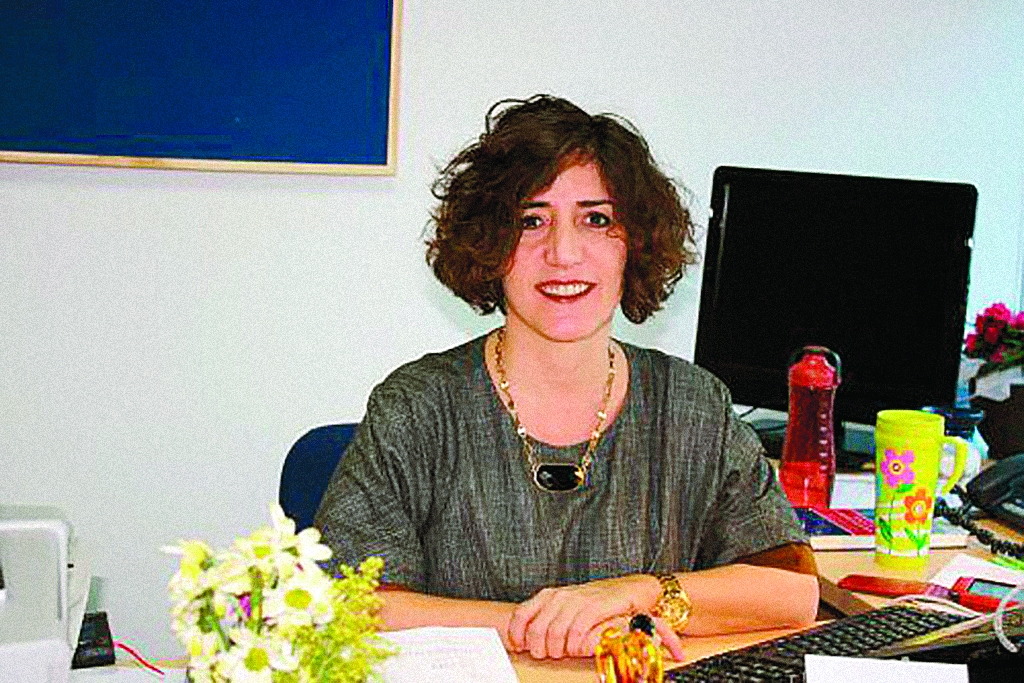 If the opposition alliance wins (assuming that we can have free and fair elections), and opposition candidate Kemal Kilicdaroglu defeats President Erdogan, bringing an end to his two-decade hold on power, first the efforts will concentrate on stopping the democratic backsliding in the country, putting emphasis on rule of law and fundamental freedoms, and political prisoners like Kavala and Demirtas will be released.
If the opposition alliance wins (assuming that we can have free and fair elections), and opposition candidate Kemal Kilicdaroglu defeats President Erdogan, bringing an end to his two-decade hold on power, first the efforts will concentrate on stopping the democratic backsliding in the country, putting emphasis on rule of law and fundamental freedoms, and political prisoners like Kavala and Demirtas will be released.
An orthodox economic policy seems to be obligatory, it will be implemented together with experienced bureaucrats who will be back in their respective institutions and a serious fight with corruption will start. The new administration will almost certainly make a sincere effort to improve relations with Turkey’s Western allies and respect its multilateral commitments.
Although the opposition seems to be serious about EU accession, they know it is not possible in the near future. They will try to alleviate the lack of mutual trust by putting an end to democratic backsliding and emphasizing cooperation with the EU in several mutually beneficial areas.
If Erdogan remains in power, he might be forced to leave the unorthodox (or “unique”) economic policy he has been pursuing in order to be able to put an end to the depreciation of the Turkish Lira and attract foreign funds, but I do not think that he can put an end to corruption and nepotism. Furthermore, I am afraid Ankara’s democratic backsliding and unpredictable and sometimes confrontational foreign policy will continue. Anti-Western rhetoric may be reinvigorated in line with the developments. EU accession will be totally off the agenda and the transactional nature of the relationship with the EU will be strengthened.
If the current administration remains, the current honeymoon that is mainly the result of the prompt reaction by the Greek government and the Greek community to the recent devastating earthquakes in Turkey and a visit by Greek Foreign Minister Nikos Dendias might continue for a while. However, in case of another domestic crisis, the aggressive rhetoric might come back to the relations.
If the opposition wins the elections, although the existing problems might remain, they will be dealt with with diplomacy and dialogue without a poisoning narrative. There will no verbal attack on the territorial integrity of Greece and international law will form the basis of the relationship.
The policy towards Greece, like the foreign policy in general will be an institutional one based on the knowledge and expertise of the Ministry of Foreign Affairs. Furthermore, in the medium term, cooperation in energy – as proposed by Dendias – tourism and other areas might start.
Yavuz Baydar – Editor in chief, Free Turkish Press
Erdogan win would be a pyrrhic victory
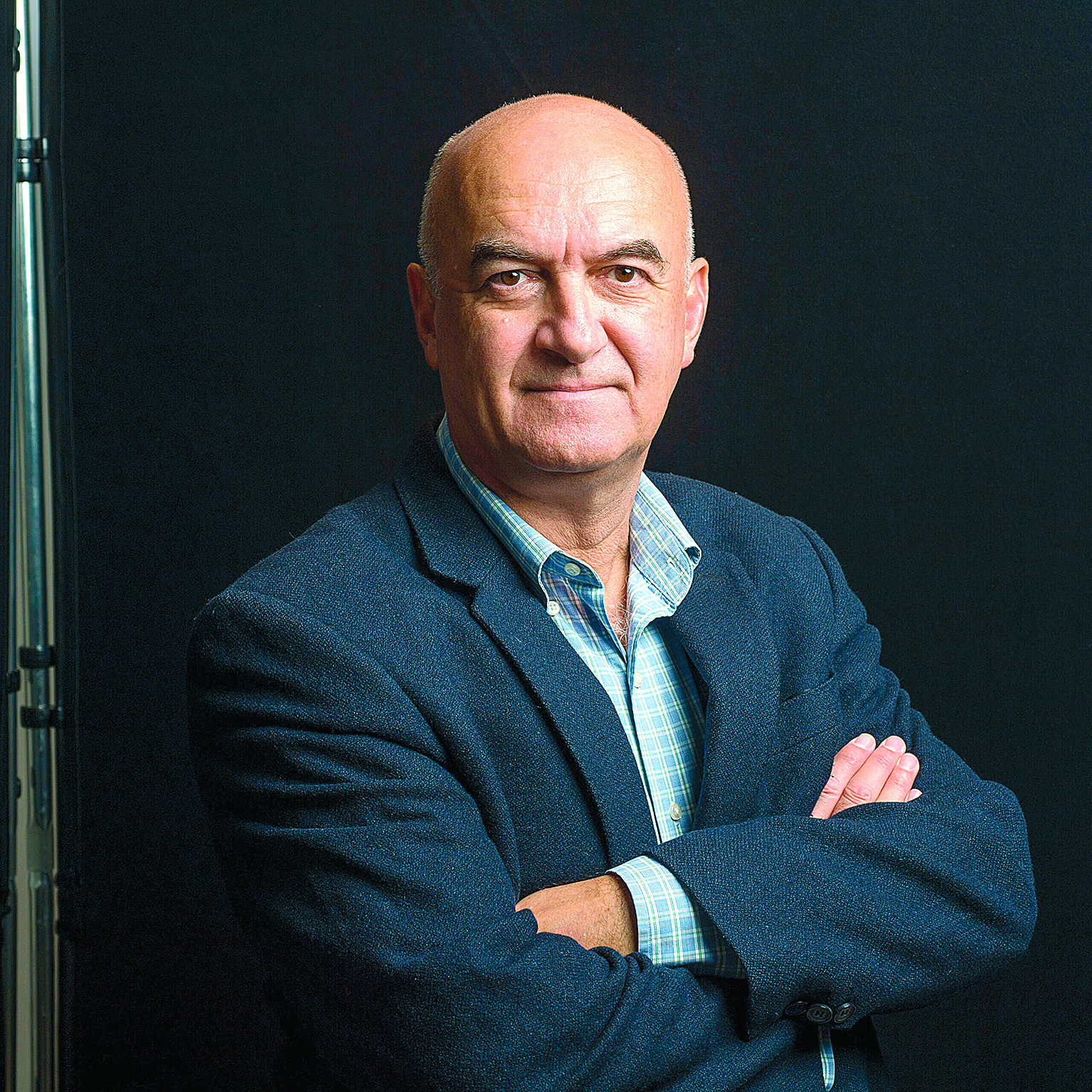 There are two likely scenarios, regardless of which camp gains the majority in parliament, where even the balance between the number of seats seem to hang on edge. Whoever wins, there will be high tension in the aftermath.
There are two likely scenarios, regardless of which camp gains the majority in parliament, where even the balance between the number of seats seem to hang on edge. Whoever wins, there will be high tension in the aftermath.
Despite the euphoria in the opposition front, Erdogan has recovered lately, and may end up as a winner, albeit by a narrow margin. Such a result will be interpreted by him as another “carte blanche” to push Turkey from a hard-core autocracy to a consolidated authoritarian rule. He will tighten the screws more severely, trying to dwarf the opposition. But, it may be a pyrrhic victory over a ruin: It will only deepen the economic crisis, whose consequences will be an even more confrontational and isolated Erdogan, who, like Maduro, will have to unleash a survival game on a tightrope walk, approaching closer to autocratic rulers in Asia and Middle East. We may see an unchanged attitude vis-a-vis the USA and NATO, and a continuity in offensive foreign policy regarding Syrian Kurds and Cyprus.
The second likely scenario is a Kilicdaroglu win, disregarding the breakdown in parliament. Certainly, it will ease the tensions considerably at the initial stage, emboldening the anti-Erdogan camp. However, Kilicdaroglu will not only inherit a ruined economy, but – regardless of how big a margin he wins with – he also will face a task of handling a massive block of bureaucracy, mainly shaped from top to toe by Erdogan and his corrupt allies. His third challenge will be the very opposition block whose unity is set sooner or later to implode, because of potentially clashing wills due to ideological diversions and personal ambitions within. The fourth challenge will be on how he handles the presence of the Kurdish YSP MPs, in terms of peace process demands. In any case, this scenario incldes the high likelihood of early elections within a year or so, due to the instability it signals.
How the result will affect Greek-Turkish relations will be, in any case, up to how the post-election approach of Turkey’s key ally, the US, and the EU, will be. If Erdogan wins, the tensions may re-increase, as his slow-motion isolation (on the basis of transactional relationships) will continue. The geopolitical border between West and East will take deeper roots along the Evros River and in the Aegean. But Erdogan is certainly aware that any open aggression to Greece may lead to his downfall.
If his contender wins, it will again be up to how Washington stages the choreography. Kilicdaroglu is not at all hostile to Greece; all he has to do is to regain control over the army, restore the Foreign Ministry, appoint a rational minister over it, and insulate his nationalist partners’ emotions and provocations. He will need all the help he can get, because Islamists, nationalists and pro-Russian elements will remain in action.
Asli Erdogan – Turkish writer, author, human rights activist, columnist, ex-political prisoner, and particle physicist
A brake on the path to hell
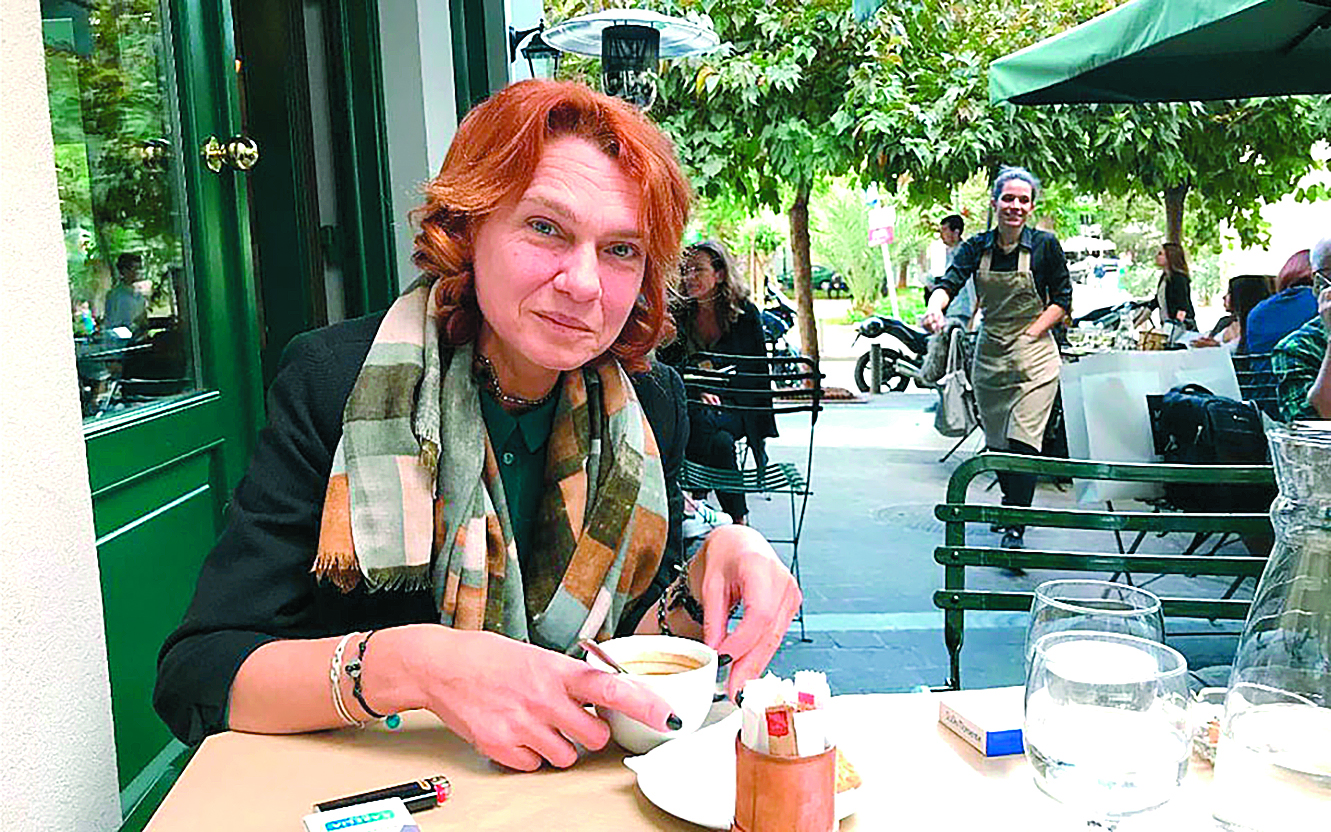 I tend to believe that these are the most important elections since 1950, when the Turkish Republic had the first real elections, starting a regime with more than one party. The victory of the opposition Democrat Party had very soon turned into a huge disappointment, with mass arrests of leftists in 1951, then a cycle of military coups started and shaped the political scene in Turkey almost till now.
I tend to believe that these are the most important elections since 1950, when the Turkish Republic had the first real elections, starting a regime with more than one party. The victory of the opposition Democrat Party had very soon turned into a huge disappointment, with mass arrests of leftists in 1951, then a cycle of military coups started and shaped the political scene in Turkey almost till now.
Erdogan has so far accomplished his goal of gaining a full monopoly of the state, he has absolute control not only over the government, but also the judicial system. Practically this means anybody who catches his attention ends up in prison! HDP, one of the very few parties with a real democratic agenda, is entering this very crucial election with almost all its leaders in prison. Erdogan’s goal is to finish up his project, to consolidate his power also from the “ideological” point of view, – i.e. to build up a more “Islamic” society which would invariably mean more and more oppression of women, gays, Alevis and seculars, among others… It seems like a desperate crossroads, on the one hand a “Kemalist” party, continuously compromising to five right-wing partners and playing the card of “nationalism,” on the other, a dictatorship fast and dangerously consolidating and “cleaning up” the last remains of democracy and secularism…
On the one hand, I am trying not to build up all my hopes on this election, as my expectancy from the opposition is only one thing: Perhaps they can put a brake on this car speeding towards hell! If we can’t slow it down now, I am afraid it will be far too late in the next elections. Sure, I do not expect an automatic democratization from Kilicdaroglu and his coalition partners, but if he keeps a few of his promises, like the release of Osman Kavala and Selahattin Demirtas, it would mean a lot for us. It would mean a fresh breath, a glimmer of hope. Imagine… There are hundreds of people who are waiting for the elections simply to be released from prison!
Freedom of expression! It is a joke in today’s Turkey! Media, the internet, academies, theater, all you can imagine is suffocating under heavy censorship, journalists are either “in” or “out,” meaning in prison or out of Turkey, academics, actors, artists, film directors, singers are escaping from Turkey; theater plays, caricatures, books get banned routinely. (Even my book of essays, “Not Even the Silence Belongs to You Anymore,” with the tittle borrowed from Seferis, was recently banned.) All I can expect under such circumstances is just a break, relief for some time from continuous court cases and police scrutiny. Or, let me put it this way, all I can expect perhaps is a non-biased judge in the court room, a prosecutor who wouldn’t arrest me after receiving a phone call!
This is precisely how I was arrested. With “special orders” from the “top.” I had started my column back in 1998 at Radikal, and had written my most “provocative” articles back then touching on almost every taboo, torture, rape, prisons, Kurds… But even in the late 90s, although I suffered from regular threats, I had never faced a court case. It came all of a sudden. In August 2016, only one month after the attempted coup, I got arrested on the pretext that I was on the advisory board of Ozgur Gundem, a pro-Kurdish newspaper, and I was charged with 302, “the destruction of the unity of state.” The prosecutor asked for a life sentence, for being the literary adviser to a legal newspaper. (I think the real reason behind my arrest is that my articles about the atrocities the military committed in Kurdish cities caused huge anger, the fact that I am not Kurdish even augmented the reaction, I was “a traitor” in their eyes.) I was released after four and a half months in prison, but the court case lingered on for more than five years. (I was finally acquitted of all charges.) All these years I have tried to survive in a foreign country (Germany), dealing with severe health problems aggravated by prison as well as post-traumatic anxiety, all these years I have been… only waiting. Waiting for something I cannot define, not even dream of! There is no more Ithaca for this female Odysseus – probably there never was. I am thinking of returning to Turkey, independent of the political situation. I know that the risk for me going back to prison is high, but only “there,” in my “imagined homeland,” in my own language, my words have a meaning. And so does my life. When the meaning is lost, all else will be lost.
Dimitar Bechev – Lecturer, Oxford School of Global and Area Studies, Visiting Scholar, Carnegie Europe
No drastic break from the past seen after Turkish election
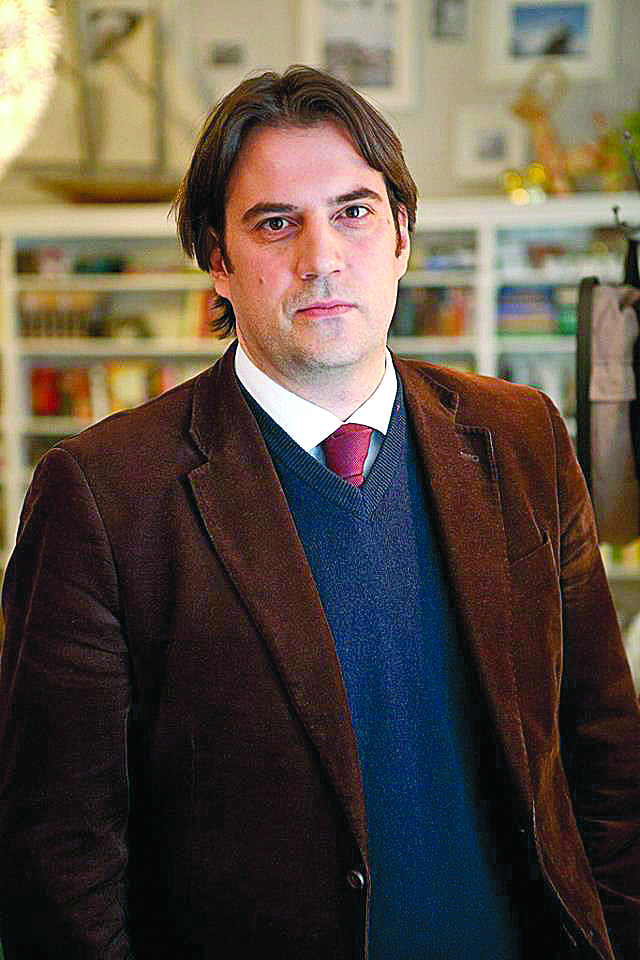 The result of the Turkish elections “will not particularly affect” Ankara’s policy towards Greece and Cyprus, according to Dimitar Bechev. The Bulgarian analyst, lecturer at the Oxford School of Global and Area Studies, visiting scholar at Carnegie Europe and author of “Turkey Under Erdogan” tells Kathimerini that in particular the presence of Meral Aksener’s Good Party in the opposition coalition does not create expectations for a change of course.
The result of the Turkish elections “will not particularly affect” Ankara’s policy towards Greece and Cyprus, according to Dimitar Bechev. The Bulgarian analyst, lecturer at the Oxford School of Global and Area Studies, visiting scholar at Carnegie Europe and author of “Turkey Under Erdogan” tells Kathimerini that in particular the presence of Meral Aksener’s Good Party in the opposition coalition does not create expectations for a change of course.
“The next president of Turkey, whoever he is, may continue the current policy of a thaw in bilateral relations,” notes Bechev. “However, the underlying issues on which the two countries are at odds will remain open. The only hope is the revival of EU engagement with Turkey – provided, of course, that Turkey implements a program of democratic reforms. This would have a positive impact on relations with Greece.”
But it is the EU ready for a more constructive relationship with Turkey? “Yes. It could proceed to modernize the Customs Union on the basis of Turkish demands, but also cooperate more closely on energy and climate change issues,” he replies.
Neither will Turkey’s broader geopolitical stance be characterized by a break with the Erdogan era in the event that the latter is defeated on May 14. “Turkish foreign policy will exhibit a degree of continuity. The National Alliance will continue with resets in the Middle East and possibly go further than Erdogan in the rapprochement with Assad. Ties with Russia may cool down in the short term but Turkey won’t join Western sanctions. Nor will there be a turn towards the US, even if anti-American rhetoric is dialed down.”
The possibility of more substantial changes concerns relations with the EU, he notes, “especially if democratic changes are implemented and political prisoners are released.” For there to be a meaningful revival of democracy, however, he adds, “groundbreaking reforms will be needed – in particular the abolition of the presidential regime and the resumption of the peace process with the Kurds. This will not be easy – especially with a fragmented parliament and the economy in shambles.”
A victory for Erdogan, on the other hand, will mean “at best” the continuation of the same policies. “He will have survived politically by defying the predictions. He will focus on breaking up the National Alliance and recapturing Istanbul and Ankara in the 2024 municipal elections. He will possibly also make some adjustments to economic policy – putting technocrats back in vital positions, allowing the Turkish lira to slide further by easing administrative measures that restrict economic activity (e.g. removing the obligation of export companies to convert foreign exchange earnings into Turkish currency). Society will be divided, there will be resentment towards Erdogan, possibly protests in the short term.
His popularity will not recover, he will muddle through his new term. On the contrary, Ekrem Imamoglu will continue to gain ground politically – especially if he is re-elected mayor of Istanbul next year.”
Cengiz Aktar – Political scientist, essayist, columnist
No quick fixes for Turkey’s domestic and external problems
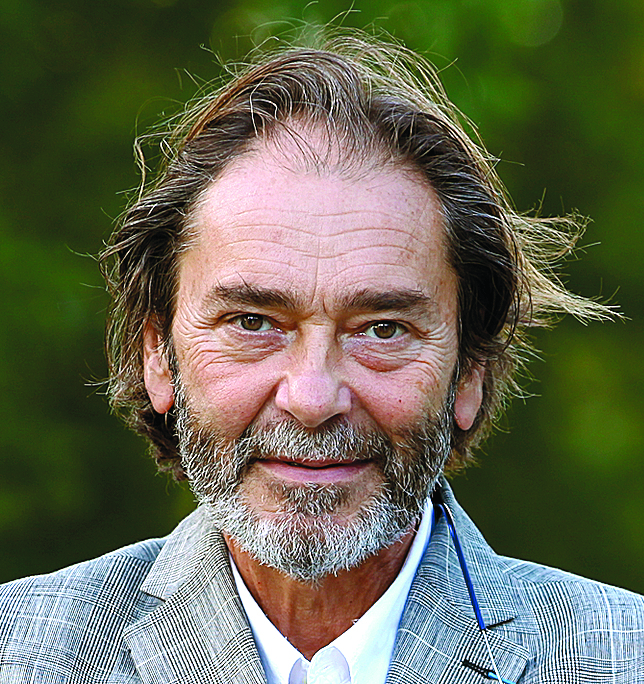 For many the bad scenario would be the re-election of Erdogan and his ruling coalition. Despite the victory, the Ankara regime would face overwhelming difficulties to continue like before, not least on the economic front. All macroeconomic tools are artificially engineered so as to give voters a sense of opulence and normalcy, which is unsustainable. The economic hardship would have incalculable consequences for domestic as well as external policies of the regime. Moreover, as the regime needs to literally steal the elections, the popular discontent would be difficult to tame. Thus, as the regime would rather concentrate its attention on domestic matters, it would, paradoxically, tone down its harsh rhetoric against neighbors, including Greece. Actually it has already started to act like this. Nevertheless the Russian bond would remain as a major constraint in the way of multidimensional normalization abroad.
For many the bad scenario would be the re-election of Erdogan and his ruling coalition. Despite the victory, the Ankara regime would face overwhelming difficulties to continue like before, not least on the economic front. All macroeconomic tools are artificially engineered so as to give voters a sense of opulence and normalcy, which is unsustainable. The economic hardship would have incalculable consequences for domestic as well as external policies of the regime. Moreover, as the regime needs to literally steal the elections, the popular discontent would be difficult to tame. Thus, as the regime would rather concentrate its attention on domestic matters, it would, paradoxically, tone down its harsh rhetoric against neighbors, including Greece. Actually it has already started to act like this. Nevertheless the Russian bond would remain as a major constraint in the way of multidimensional normalization abroad.
As for the other scenario where the “rainbow” coalition would win, domestically there would be a sense of relief among the population subjected for at least a decade to ever-deepening repression. Nevertheless the opposition ranging from extreme right to extreme left would have a hard time agreeing on any significant policy. Also, one should bear in mind that essential state institutions have been destroyed and/or seriously harmed. Human capital has deserted the country. International sympathy has waned. All in all, there would be no quick fixes for Turkey’s domestic and external problems. Externally, the problems created by the Erdogan regime would so intricate to solve that the opposition, moreover void of any consensual approach on any of them, would stall on concrete and viable solutions. As for Greece, let’s simply not forget that the “occupied islands” nonsense has been invented by the main opposition CHP led by the presidential hopeful Kemal Kilicdaroglu. We haven’t heard anything that would disavow this stance during the electoral campaign and/or government programs of opposition parties.
Michael Rubin – Senior fellow, American Enterprise Institute
Erdogan unlikely to easily accept defeat
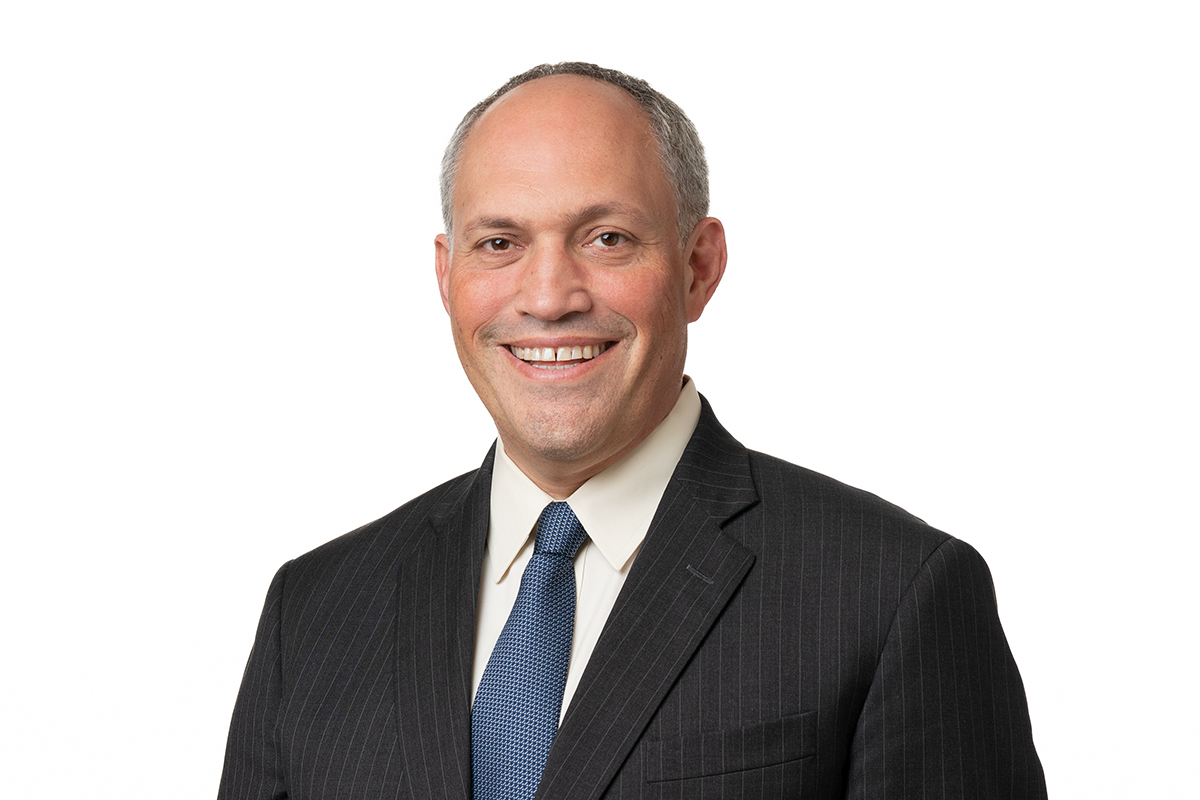 Turkey’s elections will be pivotal. Recep Tayyip Erdogan is Turkey’s second most consequential leader after Mustafa Kemal Ataturk, who shaped Turkey immediately upon its independence a century ago.
Turkey’s elections will be pivotal. Recep Tayyip Erdogan is Turkey’s second most consequential leader after Mustafa Kemal Ataturk, who shaped Turkey immediately upon its independence a century ago.
In important ways, Erdogan is the antithesis of Ataturk. While Ataturk sought to tilt Turkey toward Europe, Erdogan wants to lead the Middle East. Whereas Ataturk looked toward the future, Erdogan glorified the past and, while Ataturk embraced laicism, Erdogan promotes his own narrow and extreme interpretation of Islam.
The best scenario would be that Erdogan loses and gracefully accepts defeat, and decamps for Qatar to spend his retirement and avoid Turkish justice. Realistically, however, I am more likely to captain a team and win the next FIFA World Cup than to see Erdogan willingly step down.
A good but realistic scenario would be a second-round Erdogan loss. While he would deny the results, perhaps the defection of key supporters against the backdrop of mass demonstrations will leave him hobbled.
A bad scenario, however, would either be an Erdogan victory or a successful theft of the election from Kemal Kilicdaroglu. Erdogan was emboldened by the failure of demonstrators to react meaningfully to Kurdish leader Selahattin Demirtas’ arrest. Would he repeat the playbook? Even worse would be if US and European leaders ultimately affirm such a stolen victory out of fear of Erdogan’s temper tantrums or his threats to unleash a flood of refugees.
Any Erdogan victory will be a disaster for Greece-Turkey relations. Emboldened, Erdogan might use the centenary of the Lausanne Treaty or the declaration of modern Turkey to annex northern Cyprus and seize Aegean islands. He will need to distract Turks from his economic mismanagement. He is a master at blinding Turks with nationalist polemic. The danger is high.
Bacik Gokhan – Professor, Palacky University
Threat of full-blown regime change
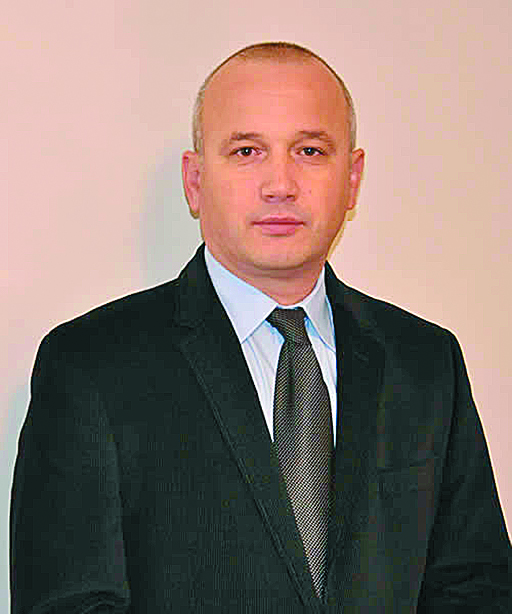 The good scenario, for people like me, is that the opposition – i.e. Kemal Kilicdaroglu – wins the presidential elections. Many see the upcoming elections as the last exit before Turkey’s full-blown regime change.If Erdogan wins despite a collapsed economy, Islamists would read this as another blank check for their ideological agendas.
The good scenario, for people like me, is that the opposition – i.e. Kemal Kilicdaroglu – wins the presidential elections. Many see the upcoming elections as the last exit before Turkey’s full-blown regime change.If Erdogan wins despite a collapsed economy, Islamists would read this as another blank check for their ideological agendas.
The bad scenario is Erdogan winning the elections. Erdogan will then easily finalize his transformation of state institutions in line with his Islamist-nationalist outlook.
That practically means almost 30 years of Islamist rule in Turkey, enough of a period to have an Islamist generation of bureaucrats, soldiers and judges. Then this would prove that the West’s eastern border is no longer Turkey but Greece.
A presidency of Kemal Kilicdaroglu will indeed ease the tension with Greece. However, the Turkish opposition is also nationalist. To a large extent, the typical Turkish view of Greece is similar, no matter whether one is Islamist, nationalist or secular. In general,
Turkish identity has failed in developing a rational view of Greeks and Armenians. It is shaped by nationalist and emotional elements, which makes the subject a useful means for politicians.


